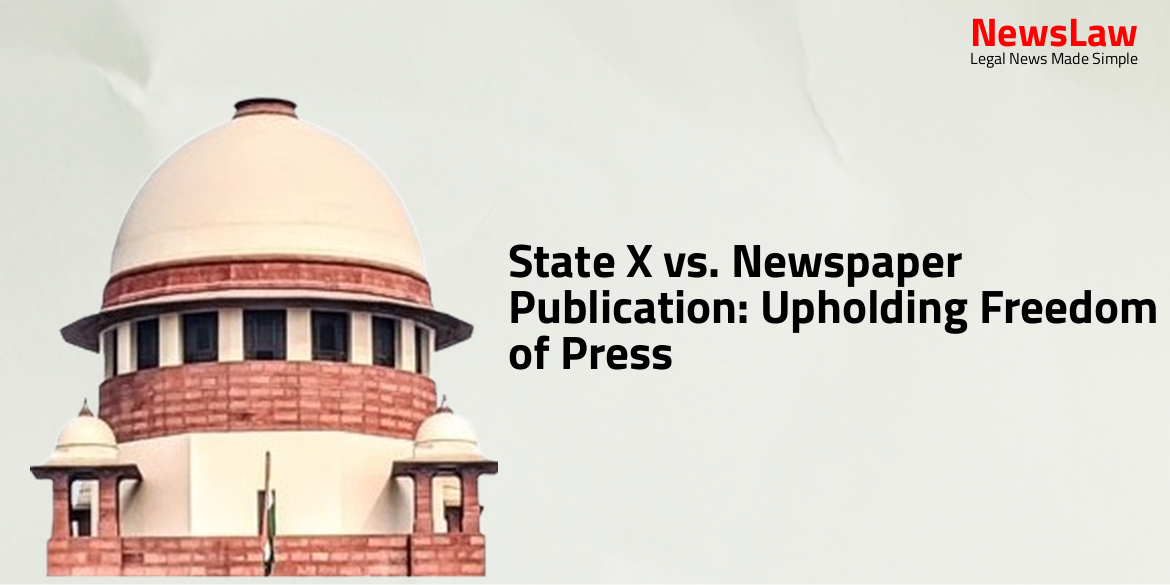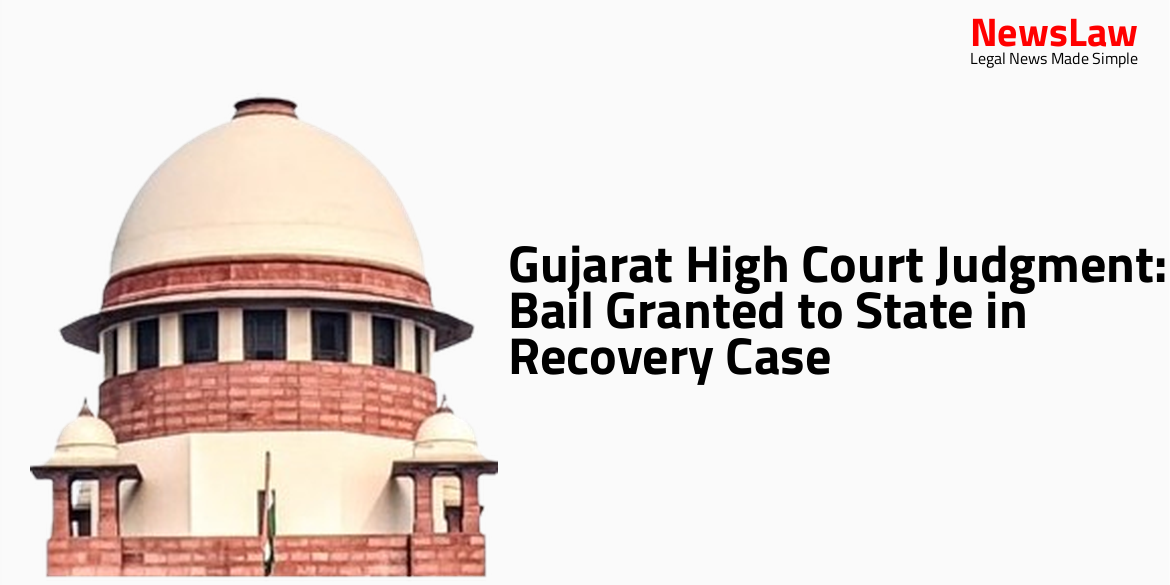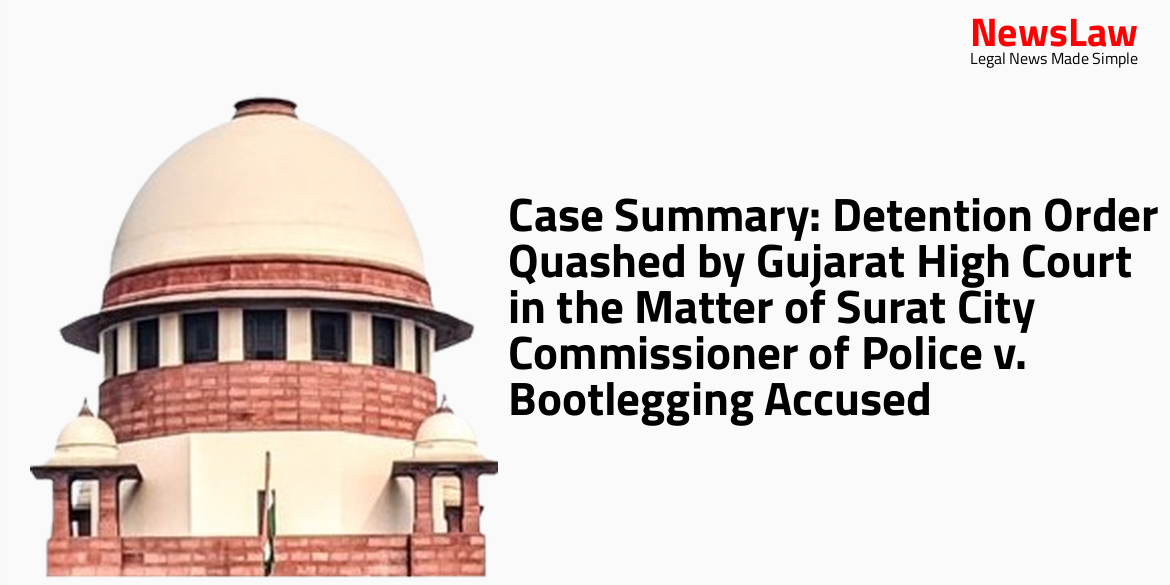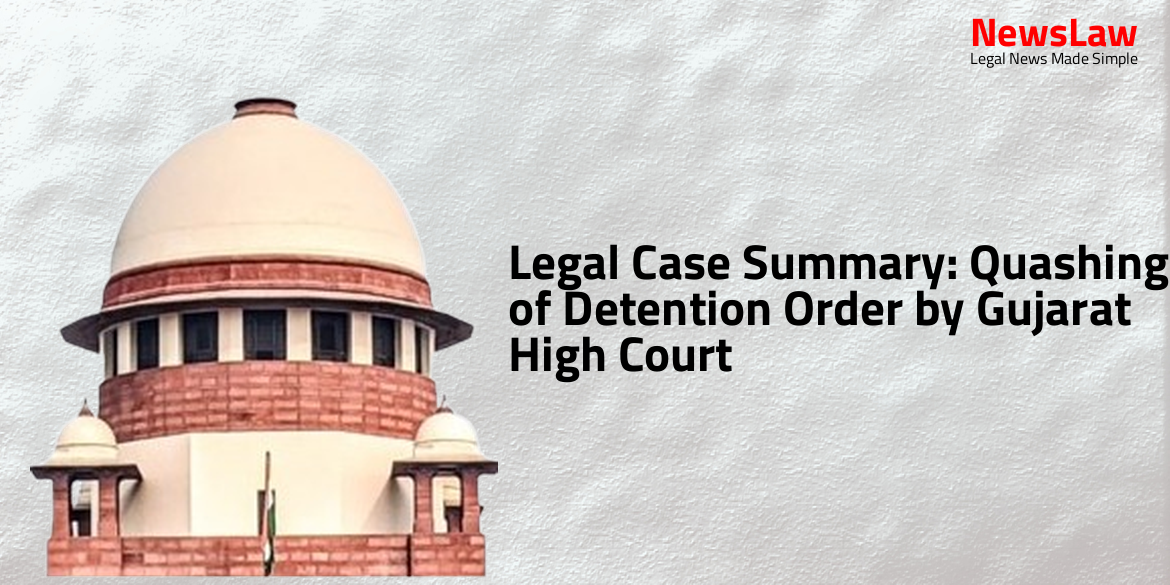In a significant legal battle between State X and a newspaper publication, the Gujarat High Court has delivered a crucial judgement upholding the freedom of press. The case revolves around the imposition of a ban by State X that allegedly infringes on the fundamental right to freedom of speech and expression, particularly the freedom of press. The court’s decision in this case carries important implications for the wider discourse on public order and constitutional rights.
Issue
- The main issue in this case is whether the action of State X in imposing a ban on the publication of a certain newspaper violates the freedom of press guaranteed under Article 19(1)(a) of the Constitution of India.
- The petitioner argued that the ban imposed by State X is a direct violation of the fundamental right to freedom of speech and expression, which includes the freedom of press.
- State X, on the other hand, contended that the ban was imposed in the interest of public order and security, and falls under the reasonable restrictions provided under Article 19(2) of the Constitution.
- The court needs to determine whether the restriction imposed by State X is a reasonable restriction within the meaning of Article 19(2) and whether it is justified in the present case.
Arguments
- Petitioner has been detained based on the registration of four FIRs related to private disputes, for which he has been granted bail by the competent court.
- Activities of the petitioner may disturb law and order but not breach public order.
- Authority could have chosen the less drastic remedy of canceling bail instead of passing the order of detention.
- Detention order was passed immediately after the petitioner was released on bail for the fourth FIR.
- Learned AGP strongly objected to the grant of petition.
- AGP submitted that the alleged illegal activity of the detenue could lead to a disturbance of public order.
- The detaining authority’s order was considered appropriate by AGP in the given circumstances.
- Upon hearing both parties, the Court found that the detaining authority failed to prove that the activities of the detenue affect public order.
- The Court noted that the four cases against the petitioner were related to private disputes and not public order.
- A reference was made to the case of Pushker Mukherjee v/s. State of West Bengal to distinguish between ‘law and order’ and ‘public order’.
- The distinction between various types of infractions of order was discussed in the referenced case.
- The subjective satisfaction of the detaining authority was deemed questionable due to the lack of impact on public order.
Analysis
- Disturbance of public order must affect the community or the public at large to fall under Preventive Detention Act.
- Serious forms of disorder directly impacting the community come under the Act.
- The subjective satisfaction of the detaining authority was not evident in passing the detention order.
- Detenue was released on bail before detention order was passed, indicating a lack of necessity for detention.
- Cancellation of bail was a milder alternative not pursued before issuing the detention order.
- The order of detention lacks justification and stands vitiated.
- Distinction between disorder and public disorder is crucial in determining the need for Preventive Detention Act.
- Cases of disorder primarily injuring individuals are dealt with under ordinary criminal law, not preventive detention.
- Subjective satisfaction would stand vitiated as per the recent decision of the Hon’ble Supreme Court.
- State has the option to seek cancellation of bail or appeal to the Higher Court if the detenu is a menace to society.
- Preventive detention law is not the appropriate remedy in the given circumstances.
- Simplicitor registration of FIRs alone doesn’t establish a nexus with the breach of maintenance of ‘public order.’
- No relevant and cogent material exists for invoking power under section 3(2) of the Act.
- The petition is allowed, and the order of detention dated 03.11.2023 is quashed.
- The detenue is ordered to be set at liberty forthwith if not required in connection with any other case.
Decision
- The Rule was made absolute.
- The Respondent No. 1 was directed to pay costs to Petitioner No. 1.
- Counsel for Respondent No. 1 submitted that costs should not be in excess of 10,000 INR.
- The costs were fixed at 10,000 INR to be paid within 4 weeks.
- In case of delay in payment of costs, interest at the rate of 6% per annum would be applicable.
Case Title: ANIRUDHSINH @ KANO ARVINDSINH VAGHELA Vs. COMMISSIONER OF POLICE
Case Number: R/SCA/124/2024



